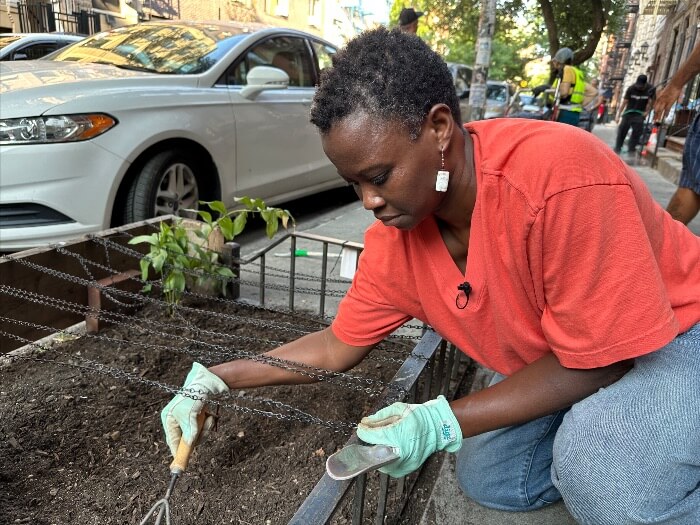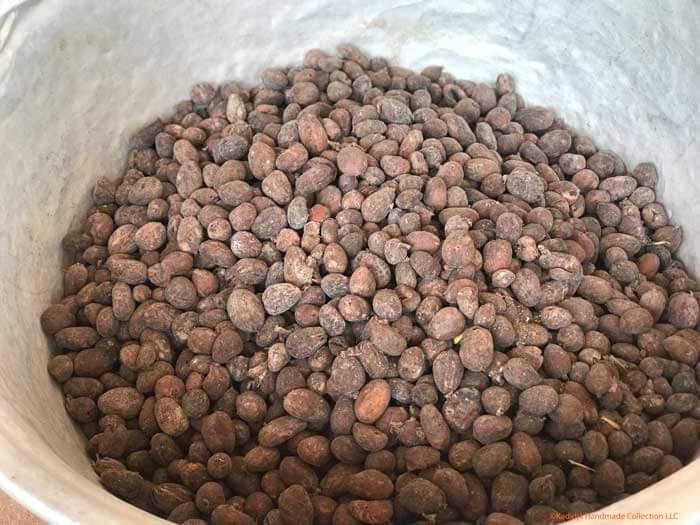 |
Shea fruit collecting is almost over in northern Togo, where I grew up. The Shea fruit sit in piles at the women’s homes. They eventually process the Shea nuts inside the fruit into Shea butter.
More and more these days, people plant Shea trees. This was not the case years ago, though. It is a sign that Shea trees are valued more than ever!
| The Coolest Block |

The Coolest Block competition has ended — and I came in third place! The award is great, but what makes me more happy is that so many people were competing to protect and care for trees. I noticed the beautiful work of so many people across the East Village as I was out and about. Congratulations to all who competed!
We need to do more to protect our trees. I hope if you have time you can join these kinds of efforts. They really make a difference!

Shea for economic development
Although I use locally made 100% all-natural Shea butter from women’s groups in West Africa, there is a bigger Shea industry that involves the processing of hundreds of thousands of tons of raw Shea nuts every year. Millions of women collect these Shea nuts and sell them to local buyers for big companies. The companies export the nuts to Europe where they are processed into specialty fats, which are sold around the world. If you eat Snickers or Milky Way or Hershey bars, you’re eating Shea-based specialty fats!
The women do not make much money selling these raw Shea nuts. The companies make huge amounts of money though selling the specialty fats — it’s a big business. If the Shea nuts were processed in Africa, however, people there would make more of the money — it could really drive their economic development.
The governments of some countries are starting to act to make local processing a reality. You probably missed the news that last September the government of Burkina Faso suspended the export of raw Shea nuts. The idea is that suspending the export of raw Shea nuts will encourage local processing of Shea nuts, which then creates jobs in the country and increases local capacity — while allowing the added value from processing to be realized in Burkina Faso. Notably, other countries within the region, including Mali, Togo, and Côte d’Ivoire, have adopted similar measures.
More and more, it’s obvious that Africa needs more local manufacturing and industrial development. But the countries can’t do that if they are simply exporting raw materials. As the U.S. and other countries cut back on aid to Africa, perhaps these kinds of efforts to process and manufacture locally will take off — and bring greater economic development to African countries.
